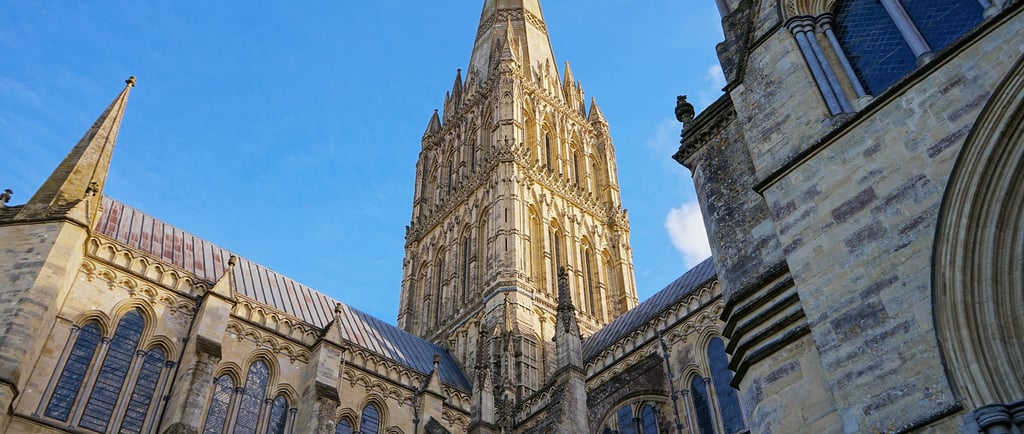Magna Carta's Lasting Legacy
This article explores an archaic document and its spectacular evolution into becoming one of the most prominent components of British and American law
LEGAL HISTORY


When you think of Britain, what typically comes to mind? Bad food, bad weather? Football? True, but above all, democracy. However, it was not always this way. Centuries ago, Britain was a dystopian society where peasants worked in shackles and lords rode on gallant horses. If not for the Magna Carta, maybe today’s Britain wouldn’t be so different.
In 1215, King John of England signed the Magna Carta, a legal document with a name meaning ‘Great Charter’ in Latin. Amidst the turbulence of the early 13th century, England was struggling with the failing rule of King John, who had resorted to tyranny in attempt to avoid rebellion. So, in 1215, English barons drafted a charter for the king to sign as a solution to their immediate grievances. The king, as much as it angered him, was coerced into signing the charter to prevent a civil war. Unbeknownst to the barons, the Magna Carta’s impact would stretch far beyond the issues around King John’s reign, shaping the modern conception of the rule of law, and the fundamental human rights accessible to citizens today.
In short, the Magna Carta told King John that, despite being a monarch, he and his government were not above the law- it restricted the arbitrary use of royal power. As an absolute monarch, John abused his power by breaking various ancient laws customarily employed by England, such as the right of citizens to be protected from excessive taxes and the right of the church to be free of governmental power. Due to the terrible policies and decisions of the king, such as extorting the barons by raising taxes and using this money to fund various failed military campaigns, he became known as one of the worst kings in English history. Towards the end of his reign, the barons below him in the feudal system decided to write the Magna Carta and present it to the king, in order to put a stop to his tyranny and somewhat liberate the people. He was forced to agree to the terms of the charter in order to prevent a civil war. In some ways, the reforms made to English society following the signing of the charter laid the groundwork for some of the first constitutional monarchies.
Moving to today, we live in a relatively democratic society where citizens have access to many distinct rights, with existing monarchs being cultural symbols rather than political entities. The Magna Carta, in essence, provided the foundation from which democracy was built, because it placed constitutional limits on royal power, promoting equal application of the law, and catalysing the progression to an equitable society. It set the precedent that a monarch must share their power and created rights and privileges for the barons to prevent royal tyranny over the land. So, if not for the Magna Carta, what would stop a monarch in our day from emulating King John’s oppressive behaviour, if no-one in England would be powerful enough to stop them?
Moreover, the Great Charter granted fundamental rights for British citizens, aiming to improve public standing against monarchic authority and complicate our nation’s political structure. While it didn't end feudalism, the Magna Carta weakened the system by granting more power to the people.
The rights it endorsed were primarily legal in nature. For example, following 1215 all English citizens had the right to a fair and speedy trial, protection from unjust incarceration and protection of liberty and property. Prior to 1215, peasants had no rights and required their lord’s permission to marry. Because of the Magna Carta, peasants began to gain some basic rights, and they would be subject to the same laws as those above them in the hierarchy. Currently, we – citizens - are protected by various human rights acts, the most recent being that of 1998. These acts mean that we have a right to free speech, general security and privacy, freedom of expression and right to education. Certainly, those at the bottom of the 13th century feudal system would not have had all these privileges, but what this shows is that the Magna Carta was a stimulus that made the evolution from basic, essential rights to empowering, liberating rights possible. It is only because of this stimulus that our society today is so liberal: if nothing forced the monarchy to begin sharing their power before, how could we expect to be treated differently to peasants and serfs?
Ultimately, since its creation and signing in 1215, the Magna Carta remained profoundly influential throughout the following centuries and continues to be relevant in the present. Whilst being written by a group of English barons who intended to nullify the threat of King John to British stability and order, the effect of the Magna Carta extends far beyond its historical context: it involves the limitation of royal authority in modern England, and the development of basic civil rights. After considering these factors, it becomes clear that Magna Carta has matured to become one of the most important legal documents in history, shaping the society and legal framework we live within currently and impacting many landmark events in our history. So, one may ask, what would our world be like today without Magna Carta?
